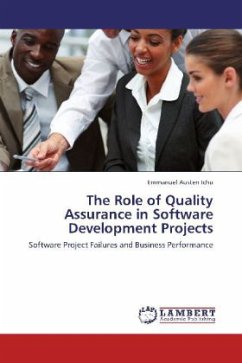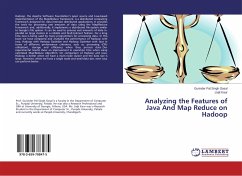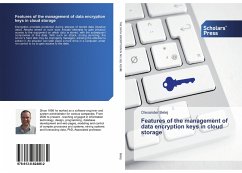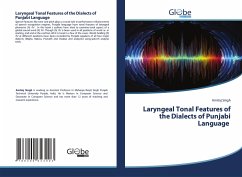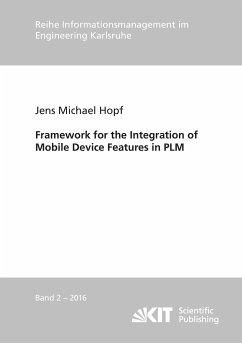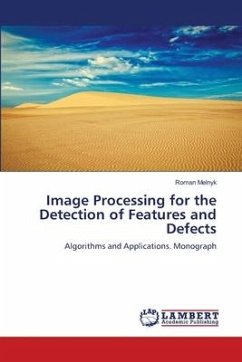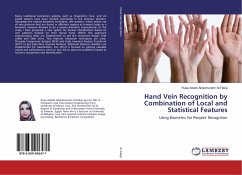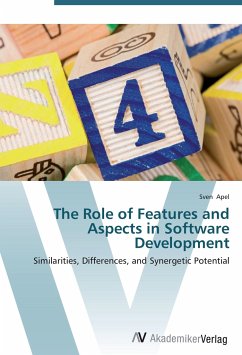
The Role of Features and Aspects in Software Development
Similarities, Differences, and Synergetic Potential
Versandkostenfrei!
Versandfertig in 6-10 Tagen
45,99 €
inkl. MwSt.

PAYBACK Punkte
23 °P sammeln!
Revision with unchanged content. Feature-Oriented Programming (FOP) and Aspect-Oriented Programming (AOP) are complementary technologies. Though they aim at crosscutting modularity, they do so in different ways. We observed that FOP and AOP can be combined to overcome their individual limitations. Consequently, we propose Aspectual Feature Modules (AFMs), a representative approach that unifies AOP and FOP. From this symbiosis we derive the novel notion of Aspect Refinement (AR) that integrates aspects into the stepwise development philosophy of FOP. We use AFMs and AR in a non-trivial case stu...
Revision with unchanged content. Feature-Oriented Programming (FOP) and Aspect-Oriented Programming (AOP) are complementary technologies. Though they aim at crosscutting modularity, they do so in different ways. We observed that FOP and AOP can be combined to overcome their individual limitations. Consequently, we propose Aspectual Feature Modules (AFMs), a representative approach that unifies AOP and FOP. From this symbiosis we derive the novel notion of Aspect Refinement (AR) that integrates aspects into the stepwise development philosophy of FOP. We use AFMs and AR in a non-trivial case study to create a product line of overlay networks. We also present a set of guidelines to assist programmers in how and when to use FOP and AOP techniques for implementing product lines in a stepwise and generative manner. Finally, we answer the question of how FOP and AOP-related implementation techniques are used today by analyzing a representative set of AspectJ programs of different sizes.We observe that aspects are used frequently for implementation problems that are closely related to FOP. We discuss why this is not surprising.



